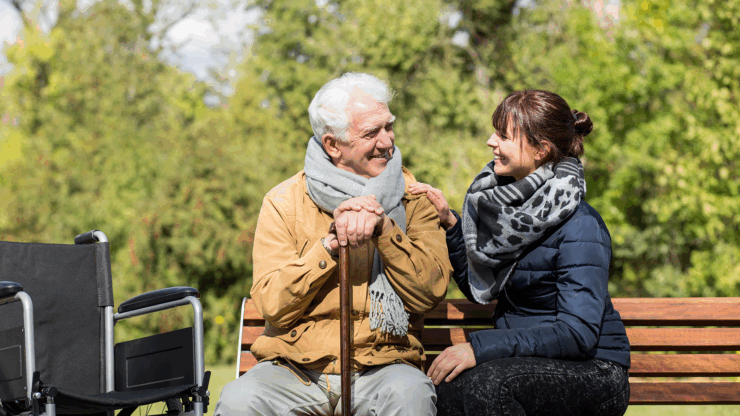
Long Distance Caregiving: Essential Tips for Caring From Afar
In today’s world, many families are geographically spread apart, and we are not always able to provide the hands-on care we would like. When you first enter the unfamiliar and new world of long-distance caregiving, you may not see the personal rewards ahead. Although you’re not available to give assistance on a regular basis, there are a lot of ways long-distance caregivers can help from afar. Before we provide essential tips for remote caregivers, we will share with you who is a long-distance caregiver. A long-distance caregiver can be anyone, anywhere, regardless of income, gender, age, social status, or employment. Anyone who is caring for an aging friend, relative, or parent from afar can be considered a long-distance caregiver. If you live an hour or more away from a person who needs care, you are a long-distance caregiver.
If you would like to stay on top of your loved one’s care from a long distance, be an effective long-distance caregiver, and help share the responsibilities with the primary caregiver. Here are a few strategies for helping aging parents or other loved ones, even if you’re far away:
- Schedule a family meeting
- Whether it’s in person, on the phone, or via Skype or Facetime, gather the family together to get everyone on the same page. You and your family members should discuss what your loved one needs, who can help, and in what ways. You all need to understand what the issues are and what your loved one wants.
- Choose a primary caregiver
- A primary caregiver’s job is to look at the big picture and help make sure that your loved one is getting the care that’s needed. You and your family can choose who the primary caregiver should be at the family meeting, to avoid caregiver burnout, consider taking turns being the primary caregiver, if possible.
- Gather information
- If your loved one has a chronic illness, gather information to help the primary caregiver – and the rest of your family – learn as much as you can about your loved one’s condition, illness, and treatment. This can help you understand what is going on, anticipate the course of an illness, prevent crises, and assist in healthcare management.
- Plan your visits
- It’s important that you get to see your loved one from time to time. The best way is to talk to your loved one ahead of time and find out what he or she would like to do or coordinate with the primary caregiver on the timing of your visit. Ask how you can help them, give them a break, and find out what your loved one needs. Be sure to spend quality time with your loved one.
- Hire a Geriatric Care Manager
- If you do not see your loved ones in person often, an elder care professional such as a geriatric care manager (GCM), can function as a lookout for an aging loved one and keep family caregivers near and far up to date on their condition. They can also find and coordinate necessary services in their communities.
- Stay connected
- Some families schedule conference calls with doctors or senior living community staff to get up-to-date information about their loved one’s health. Distance is a challenge when caring for elderly loved ones, but it can be made more manageable. With some strategic planning and a team effort, you can make sure your loved one is getting the assistance they need.
Many times, being a long-distance caregiver means worrying about a loved one and this is when LifeWorx steps in to relieve some of that pressure. With our private home caregivers, your loved one can age in place comfortably in familiar surroundings. With home care, your loved one can receive all the help they need and additionally, a caregiver can provide companionship, and assistance with activities of daily living so that you and your family can live with a peace of mind.
Find your peace-of-mind.
Explore LifeWorx’ in-home elder care services.

















